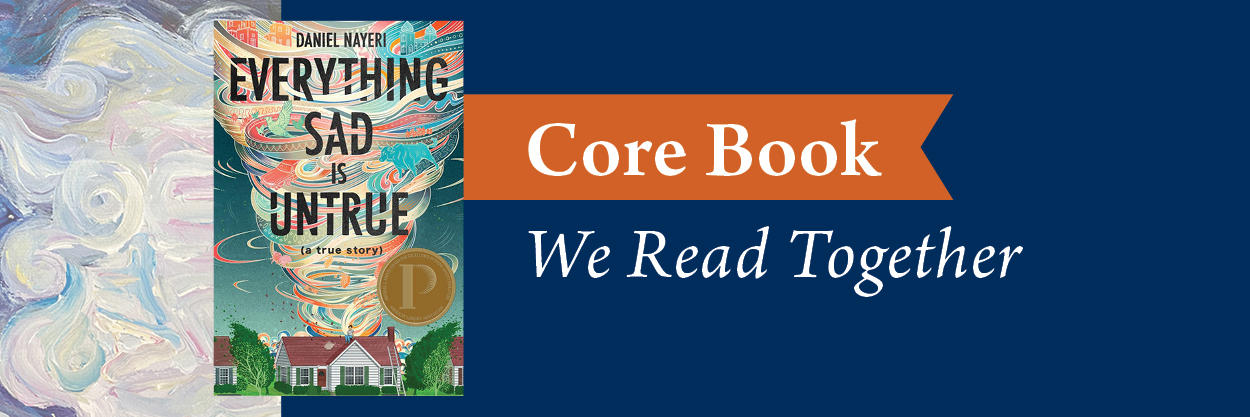August 28, 2023
Daniel Nayeri’s Everything Sad Is Untrue (Levine Querido, 2020) is this year’s Core Book selection, chosen for how it addresses timely issues facing the Christian church and broader society.

Now in its seventh year, the Core Book program invites students, staff, faculty, alumni, prospective students, parents, donors, and the local community to engage in enduring questions together through interdisciplinary responses to literature and storytelling. This motivation is grounded in the mission of Wheaton’s Christ at the Core curriculum, a distinctive general education experience marked by academic excellence and grounded in the person of Jesus Christ and his truth as revealed in the Scriptures.
“We’ve always wanted the Core Book to be something for the common good, not only for people in our classrooms,” said Associate Professor of English Dr. Tiffany Kriner, who oversees the Core Book program this year.
Nayeri’s Everything Sad Is Untrue is the first time a contemporary young adult (YA) work has been chosen as the Core Book. It joins a rich lineup of literature, including Marilynne Robinson’s Gilead, poetry by Gwendolyn Brooks, and foundational Christian texts like Augustine’s Confessions. After several years of finetuning the opt-in reading for campus readers, Kriner recognized a need to revitalize the Core Book as something that could connect Wheaton to the rest of Chicagoland through community projects, events, and reading groups.
“Everything Sad Is Untrue is one of the most welcoming books I’ve seen or known,” said Kriner. “It’s very approachable and a real page-turner, even though the structure is somewhat experimental.”
The book weaves Persian legend, family history, and spiritual autobiography into a work that emphasizes the life-changing power of storytelling in community with others. It addresses important and timely topics related to religious differences, human migration, refugee crises, and how we shape and narrate stories of faith. These core questions present a key opportunity for interdisciplinary engagement among Wheaton’s community. For example, Kriner and faculty in the Human Disaster Institute have discussed ways to amplify the disaster relief conversation on campus, sparked by the book’s spotlight on refugee crises. Sophomores in the Aequitas Fellows Program in Public Humanities and Arts this year will complete story-based projects with Outreach Community Ministries in Carol Stream, Ill. Their collaboration, titled the Community Stories Project, will connect Wheaton students in the visual arts, literary studies, creative writing, history, Christian ministry, and theater with older adults and middle school students.
In collaboration with Nayeri, Kriner and her colleagues have also created several resources to guide readers through the book and to inspire further fellowship with peers.
“My advice for people in reading this book is to read it together,” said Kriner. “Make a meal, have people over, and share stories with one another (both about the book and about your own lives). This book is all about community building and togetherness. In the spirit of the book, let’s start by telling stories.”
On October 23, Nayeri will present an on-campus talk related to themes in his book. The event will take place at 7:30 p.m. in the Armerding Concert Hall and is free and open to the public.
To learn more, visit wheaton.edu/corebook.
—Eliana Chow